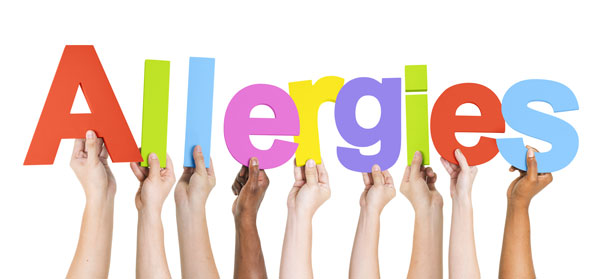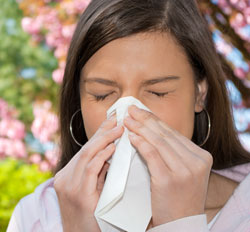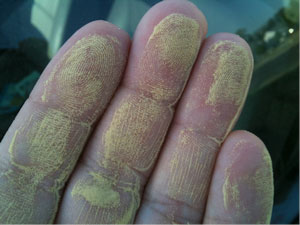

That sheet of yellow dust that seems to cover everything is an annual nuisance. It makes it hard to breathe, causes chronic upper respiratory issues, and just makes springtime a pain to suffer through. Allergies are the most common reasons why our patients report trouble wearing their contacts.
The national pollen count in April and May is typically the highest of the entire year. It is harsh on eyes, even for those who don’t wear contacts. Millions of people suffer from eye allergies that can cause allergic conjunctivitis. Wearing contacts often aggravates this. When airborne allergens increase, our eyes produce more tears and mucus in the attempt to flush the eyes of irritants. These actions can cause deposits on contacts. This can lead to discomfort and blurry vision.
For those patients who refuse to give up on their contacts during pollen season, here are a few suggestions to help ease the discomfort.
- Switch to daily disposable contacts if you aren’t already wearing them (This is the best solution). With the different options in daily disposable contacts: toric, aspheric, and multifocal, there is a lens for almost everyone. These are a little more costly, but contacts are a luxury, and should be treated as such.
- Only wear contacts for short periods of time, and then wear your glasses. You may not want to wear your glasses, but your eyes will be much more comfortable.
- Clean your contacts very well when removed and throughout the day if needed. You must actually rub the contacts.
- Use a peroxide base solution (make sure the patient understands the directions).
- Dispose of contacts if bothersome even if it is before the regularly scheduled disposal time.
- Use artificial lubricants throughout the day that are made for soft contacts.
- Use allergy drops such as Alaway before placing contacts in your eyes to help with symptoms.
- Keep your hands out of your eyes. Your hands are not always clean, and it is not good to rub your eyes. It can actually make the irritation worse.
- A cool washcloth over the eyes is very comforting. It can help with swelling and itching.
- See a doctor. If your eyes are bothering you, call your doctor. Irritation from allergies can lead to other issues.

As always, make sure your patients take their eye health seriously. Allergies are tough on everyone and especially on contact lens wearers. Make sure to educate patients so they understand what issues they may have and the best solutions to help with problems. There is no way around allergy season, but if understanding what problems it can cause and being proactive may cut down on the amount of office visits caused by pollen.

Linda Hardy is a Certified Optometric Technician and Certified Ophthalmic Assistant. She is also ABO certified and NCLE certified and a Licensed Dispensing Optician in the state of Georgia. She has been with a private optometry practice in Newnan, Georgia for 15 years as the clinical coordinator.
Linda graduated from Georgia Medical Institute as a Registered/Certified Medical Assistant in April 1996. She began working with a group of ophthalmologists as an ophthalmic assistant. She switched her career to optometry in 1999. She has had the opportunity to become knowledgeable in many areas of the eye field from assisting to opticianry.













